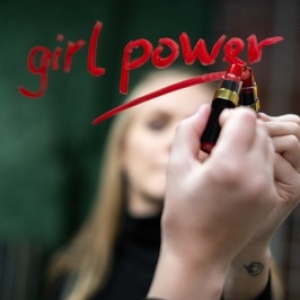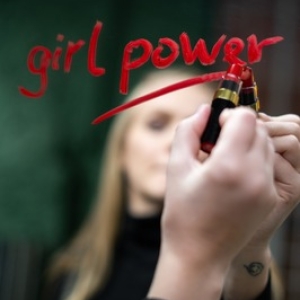I. Introduction
In the tapestry of Catholic doctrine, baptism holds a fundamental position, marking the entry into Christian life and the Church community. It's more than a mere ritual; it's a profound sacrament that signifies purification, rebirth, and the beginning of a lifelong journey of faith. This sacramental act carries deep spiritual and communal significance, establishing a foundational commonality among the faithful. However, in an increasingly diverse and interconnected world, Catholics often find themselves in romantic relationships with those who have not undergone this sacred rite. Marrying a non-baptized person presents a unique set of challenges and religious implications, stirring both internal contemplation and external dialogue within the Catholic community. This article aims to explore these challenges in depth, examining the intricate interplay of love, faith, and tradition. We delve into how couples navigate these complexities, balancing the tenets of their faith with the realities of their affection and commitment to a partner outside the traditional Catholic fold.
II. Understanding the Catholic Perspective on Baptism
In Catholicism, baptism is more than a symbolic act; it's a sacrament that signifies the washing away of original sin, marking the individual's initiation into the Christian faith. This ritual, often performed in infancy, symbolizes a spiritual cleansing and rebirth, as the baptized person becomes a member of the Church and a recipient of God's grace. Baptism is seen as the first and foundational sacrament, essential for salvation and necessary for the reception of other sacraments.
The sacrament of marriage in Catholicism, similarly, holds profound significance. It is viewed not just as a legal union, but as a holy covenant reflecting the union of Christ with the Church. The Church teaches that for a marriage to be sacramentally valid, both parties must be baptized Christians. This connection between baptism and marriage underscores the spiritual unity expected in a Catholic marriage – a shared faith and a common journey towards holiness and salvation. When one partner is not baptized, it raises theological and practical considerations, reflecting the deep intertwining of individual faith with the sacramental life of the Church.
III. Challenges of Dating a Non-Baptized Person
Dating a non-baptized person can introduce a complex array of emotional and spiritual challenges for a Catholic partner. Spiritually, the Catholic individual may experience an inner conflict between their affection for their partner and their allegiance to the tenets of their faith. This can lead to feelings of guilt or anxiety, especially if they perceive their relationship as deviating from the Church's traditional teachings. Emotionally, there may be a sense of isolation or a burden of explanation within their faith community, where such relationships might be viewed with skepticism or concern.
Societal and familial pressures often compound these challenges. For many Catholic families, sharing a common faith is not just a preference but a deeply ingrained expectation. Introducing a non-baptized partner can sometimes lead to familial discord or disappointment, as relatives might worry about the religious upbringing of future children or the spiritual harmony of the couple. These familial tensions can place additional strain on the relationship, requiring sensitive navigation.
Furthermore, potential conflicts over religious practices and beliefs can emerge as significant hurdles. Differences in viewpoints about religious holidays, rituals, and the role of religion in daily life can create rifts. For the Catholic partner, this might mean grappling with the reality of not sharing essential aspects of their spiritual life with their significant other. Negotiating these differences requires a high degree of communication, respect, and sometimes compromise, to build a harmonious relationship that respects both partners' beliefs and values.
IV. Religious Implications of Marrying Outside the Faith
Marrying outside the Catholic faith, particularly to a non-baptized individual, comes with significant religious implications that are deeply rooted in the Church's teachings and traditions. The Catholic Church categorizes such marriages as 'disparity of cult', indicating a union between a baptized Catholic and a non-baptized person. While not prohibited, these marriages require a dispensation from canonical form by Church authorities, acknowledging the unique challenges they present.
One major implication concerns the nature of the wedding ceremony. In disparity of cult marriages, the usual sacramental ceremony might be modified or replaced with a different form of blessing, adhering to the Church’s regulations while respecting the non-baptized partner's beliefs. The sacramental aspect of the marriage, which is central in a union between two baptized Catholics, is not present in the same way here, altering the spiritual context of the ceremony.
Another significant concern is the upbringing of children in mixed-faith households. The Catholic Church typically requires assurances that children born of the marriage will be baptized and raised in the Catholic faith. This expectation can be a source of tension and requires honest discussion and mutual understanding between partners. Navigating these challenges demands a delicate balance, ensuring respect for the religious freedom of the non-Catholic partner while fulfilling the commitments made to the Church. This balancing act is central to building a harmonious life in mixed-faith marriages, underlining the need for ongoing dialogue, compromise, and mutual respect.
V. Personal Testimonies
The journey of couples navigating the complexities of a Catholic and non-baptized union is best illuminated through their personal stories. Take, for instance, Maria and Alex. Maria, a devout Catholic, fell in love with Alex, who is agnostic. Initially, Maria grappled with guilt and uncertainty, fearing judgment from her community and family. However, through open and honest communication, Maria and Alex found a way to honor both of their beliefs. They opted for a wedding ceremony that blended Catholic traditions with a secular setting, respecting Alex's non-religious stance while keeping Maria's faith integral.
Another couple, John and Sara, faced the challenge of raising children. John, a Catholic, and Sara, who was not baptized, had differing views on religious upbringing. After many discussions, they agreed to baptize their children, with the understanding that they would also expose them to various worldviews and let them make their own faith decisions as they grew older.
These stories highlight a common theme: the resolution of such challenges often hinges on deep understanding, respect, and compromise. Couples like Maria and Alex, and John and Sara, demonstrate that while navigating a relationship with differing religious beliefs can be complex, it can also be a journey of mutual growth and shared respect. Through ongoing dialogue and a willingness to find middle ground, these couples have forged strong, respectful partnerships that bridge their distinct spiritual paths.
VI. Navigating the Relationship Dynamics
Navigating the dynamics of a relationship where one partner is Catholic and the other is non-baptized hinges crucially on effective communication and mutual respect. Open and honest dialogue is essential, as it allows both partners to express their beliefs, fears, and expectations. Such communication fosters an understanding that can bridge the gap between different religious backgrounds. It's important for both partners to actively listen and show empathy towards each other's perspectives, creating a foundation of mutual respect.
Religious guidance and counseling often play a vital role in these relationships. Many couples find it beneficial to seek advice from a priest or a religious counselor who understands the intricacies of interfaith relationships. These professionals can provide valuable insights and tools to help couples navigate their spiritual differences and find common ground. They can also assist in discussing sensitive topics like the religious upbringing of children, holiday celebrations, and participation in religious ceremonies.
Finding and celebrating common ground is another crucial aspect of these relationships. Couples may discover shared values, such as a commitment to kindness, integrity, and community, which can be the cornerstone of their relationship. Embracing and celebrating each other's differences, rather than perceiving them as barriers, can enrich the relationship and broaden each partner's horizons. This approach can lead to a deeper appreciation of each other's unique backgrounds, fostering a relationship that is both respectful and enriching.
VII. Support and Resources
For interfaith couples, particularly where one partner is non-baptized, a variety of support resources are available to assist in navigating their unique relationship dynamics. Many dioceses offer counseling services geared specifically towards interfaith couples, providing guidance and support from a Catholic perspective. Additionally, support groups, both within and outside the Church community, offer a platform for couples to share experiences and learn from others in similar situations. The Church can play a supportive role, offering pastoral care and spiritual guidance to help couples reconcile their religious differences. Furthermore, online resources and books on interfaith relationships can be invaluable tools, offering advice and insights to strengthen these partnerships. The support of the Church and community can be instrumental in helping couples build a strong foundation for their relationship, respecting both their love for each other and their individual faith journeys.
VIII. Conclusion
In conclusion, marrying a non-baptized person presents unique challenges for Catholic individuals, ranging from emotional and spiritual conflicts to societal and familial pressures. These hurdles, however, can be addressed through open communication, mutual respect, and a commitment to understanding. Couples navigating this path can find support and guidance from religious counseling, support groups, and the broader community. Central to the success of these relationships is the ability to celebrate differences and find common ground. With understanding, respect, and love as guiding principles, couples in interfaith relationships can build a harmonious and fulfilling life together. Embracing this journey with an open heart and mind offers a hopeful and enriching path for those willing to navigate its complexities.
IX. References/Further Reading
For those seeking deeper insight into the challenges and joys of interfaith marriages, particularly between Catholics and non-baptized individuals, the following resources offer valuable information and guidance:
-
"Familiaris Consortio" by Pope John Paul II: An apostolic exhortation that delves into the role of the Christian family in the modern world, including aspects of interfaith marriages.
-
"Mixed Marriages" by the Pontifical Council for Promoting Christian Unity: A document offering the Catholic Church's perspective on mixed marriages, with a focus on doctrinal and pastoral considerations.
-
"Till Faith Do Us Part: How Interfaith Marriage is Transforming America" by Naomi Schaefer Riley: This book provides an insightful exploration of interfaith marriages in America, including interviews and personal stories.
-
"Interfaith Marriage: A Practical Guide for Jewish-Christian Couples" by Rabbi Kerry M. Olitzky and Joan C. Hawxhurst: While focused on Jewish-Christian couples, this book offers useful advice applicable to Catholic-non-baptized relationships.
-
"When a Catholic Marries a Non-Catholic" by Robert J. Hater: This book provides a comprehensive guide for Catholics marrying outside the faith, including practical advice and theological context.
-
"United States Conference of Catholic Bishops (USCCB) - Marriage and Family: The USCCB website offers various articles and documents related to marriage, including interfaith aspects.
-
"Can We Marry?: A Guide for Couples Considering an Interfaith Marriage" by Rev. Michael Smith Foster: This guide addresses the challenges and questions couples may face when considering an interfaith marriage.
-
"For Better, For Worse, For God: Exploring the Holy Mystery of Marriage" by Mary Jo Pedersen: The book includes discussions on the spiritual aspects of marriage, with insights applicable to interfaith relationships.
These resources provide a blend of theological, pastoral, and practical perspectives, offering valuable support and guidance for individuals and couples navigating the complexities of interfaith marriage.







